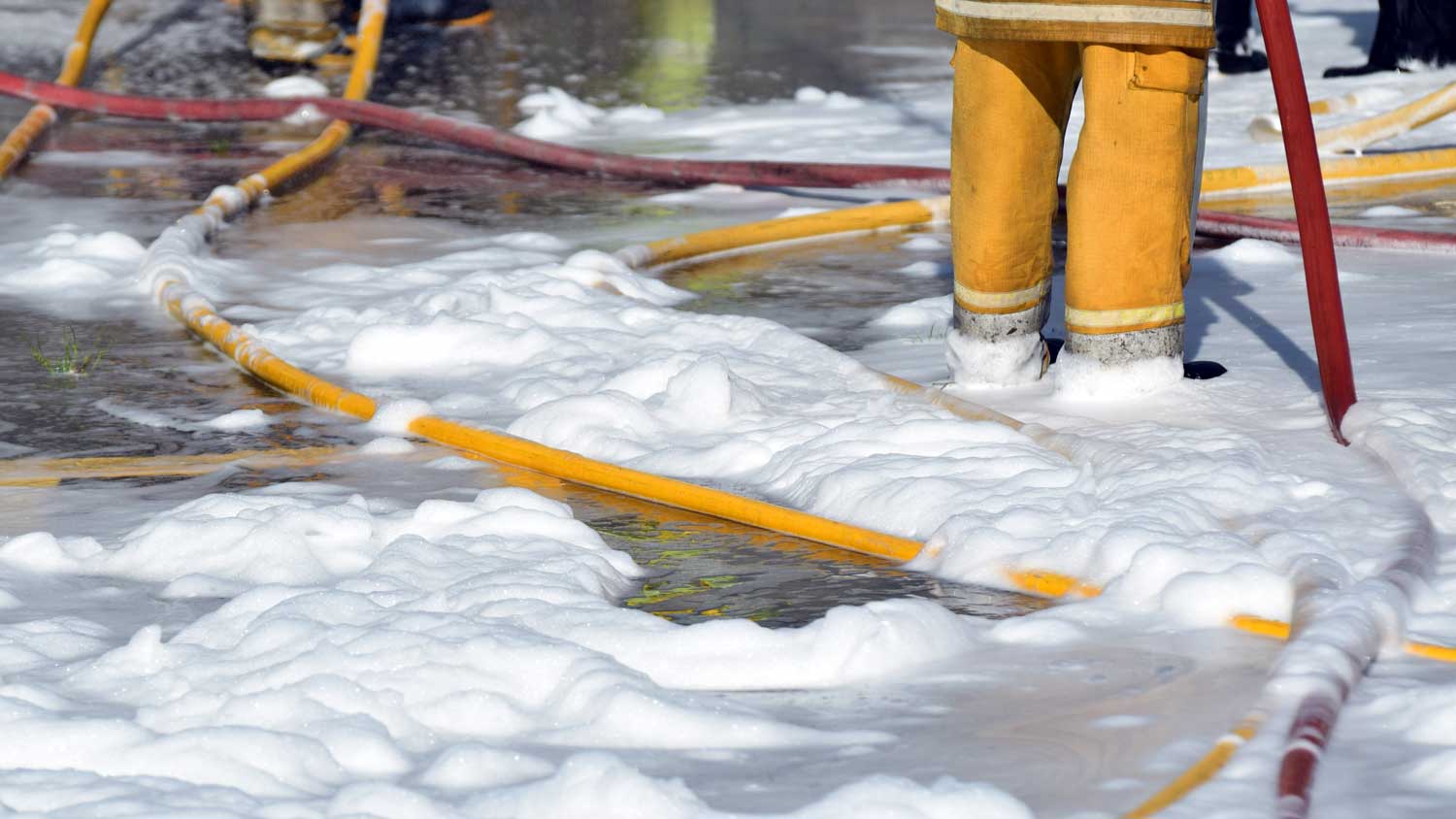AFFF Lawsuits in North Carolina
Firefighters, military service members, and others may have been exposed to cancer-causing chemicals contained in a common firefighting substance
Let Miller Law Group Help!
If you have a legal matter you would like to discuss with a Miller Law Group personal injury attorney, please complete and submit the form below. We will get back to you shortly.
Miller Law Group Fights for the Justice You Deserve
What Is AFFF?
AFFF — Aqueous Film-Forming Foam — is a fire suppressant used on flammable liquid fires. These foams work in two ways: the foam cools the fire, while the film blocks oxygen from contacting the flammable liquids, effectively smothering the fire.
AFFF was developed by the 3M in the 1960s. It became widely adopted when the U.S. Navy began requiring ships to carry it after a catastrophic fuel fire onboard the U.S.S. Forrestal that killed 134 sailors and injured 161. AFFF is now widely used throughout the military and commercial airports (where it is required by the FAA), as well as in civilian fire departments.


What Makes AFFF Toxic?
AFFF uses fluorinated surfactants to create the film that settles over the burning liquid and stifles the fire. The surfactants are part of a highly toxic class of chemicals called per- and polyfluoroalkyl substances, or PFAS.
PFAS have been heavily utilized because they are strong and heat resistant. These qualities have made them useful in a wide variety of everyday applications, from nonstick cookware to water-resistant fabrics. However, PFAS are “forever chemicals” meaning they do not degrade over time. Consequently, they have become ubiquitous in the environment; according to the EPA and the Centers for Disease Control, nearly all people have some level of PFAS in their blood.
The low levels of PFAS that have been found in the average human body are not likely to be dangerous. However, firefighters, military service members, and those who worked with AFFF have likely experienced much higher levels of exposure.
Manufacturers of PFAS have known about the dangers for decades and deliberately ignored them. In the early 2000s, the EPA warned that one chemical in the PFAS category “pose[s] a serious concern for potential future risk for humans and wildlife.’” The agency later extended that warning to all PFAS chemicals. Still, concerns emerged as early as the 1970s, when Navy researchers worried about the impact of AFFF on the environment.
3M, DuPont, Chemours, and other manufacturers have already been forced to pay billions to compensate affected people and municipalities for the effects of PFAS, on human beings and on the environment.
What Are the Risks?
PFAS chemicals settle in the blood, kidneys, and liver, creating wide-ranging health effects. Most of those effects manifest as cancer. The Centers for Disease Control (CDC), the EPA, the American Cancer Society, and others have all acknowledged links between specific chemicals and cancer in firefighters. The Veterans Administration has added AFFF to its list of toxic military exposures. Scientific research has established links between AFFF exposure and numerous diseases:
If you were exposed to AFFF as a firefighter, soldier, sailor, or marine and you have any of these conditions, you may be able to seek compensation from the manufacturers of the products you were exposed to.
What Is the AFFF Lawsuit About?
Thousands of plaintiffs — both individuals and public water providers — have sued manufacturers of AFFF over its effects on human beings and the environment. Those lawsuits have all been consolidated in the federal district court for South Carolina. The South Carolina court will oversee the pre-trial process (including discovery). Many lawsuits like the AFFF lawsuits are settled as a group during this consolidated process. Manufacturers have already settled with municipal water providers via this process, leaving only cases filed by individual plaintiffs alleging personal injury or wrongful death.
If the personal injury and wrongful death cases don’t settle as a group, or if individual plaintiffs reject the group settlement, the cases that don’t settle will return to the federal courts in their home states for trial.

Product Liability Practice Areas To Explore

I have cancer, and I am in one of the eligible categories. What should I do?
We Will Help You Get the Compensation You Deserve
If you have been diagnosed with cancer after exposure to AFFF, you have the right to hold manufacturers accountable for the harm they caused you and receive compensation for your injuries. The dedicated, experienced lawyers at Miller Law Group can help you understand your rights and guide you through the litigation process, if you’re eligible. However, you must act soon. Statutes of limitations and other legal issues could affect your ability to recover if you delay.
My family member was a firefighter who died of cancer. Can I recover on their behalf?
We Are Here To Support You Every Step Of The Way
Close family members can sue on behalf of a person who has already died from their injuries. This is known as a wrongful death suit. Wrongful death suits are governed by detailed laws that vary by state. You can be sure that the attorneys at Miller Law Group are knowledgeable about the requirements and limitations of wrongful death suits and can help you seek compensation for your lost family member. Contact us today to learn more about your rights.

